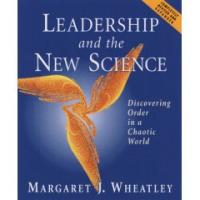30 May 2006
12 Suggestions of Insightful Reading for Designers of Energy Descent Pathways…
 I am currently in full-on bookworm mode, up to my neck in books and papers, attempting to write my dissertation about tools for community planning for energy descent (due in September). Therefore, this might be a good time to reflect on some of the gems I’ve come across recently. The last list of books I did was around Christmas, and many people enjoyed it and wrote to me to that effect, apart from the person who commented on the site that it was a “weak little list”, and that its “uninformed reviews are rife with typos”. Oh well, you can’t please everyone..
I am currently in full-on bookworm mode, up to my neck in books and papers, attempting to write my dissertation about tools for community planning for energy descent (due in September). Therefore, this might be a good time to reflect on some of the gems I’ve come across recently. The last list of books I did was around Christmas, and many people enjoyed it and wrote to me to that effect, apart from the person who commented on the site that it was a “weak little list”, and that its “uninformed reviews are rife with typos”. Oh well, you can’t please everyone..
So here is a new list. They are not in any particular order, and very few of them have anything to do with peak oil *per se*, rather they reflect some of the odd avenues I am exploring for pieces of the puzzle we might need for designing community solutions to it.
 Find Your Power: Boost Your Inner Strengths, Break Through Blocks and Achieve Inspired Action
Find Your Power: Boost Your Inner Strengths, Break Through Blocks and Achieve Inspired Action
Dr. Chris Johnstone.
This is a very interesting new book, which is written as a self-help book, but which contains a great deal of use to energy descent work. Chris takes peak oil as one of the challenges we need to face, and offers a number of tools through which we can unlock our inner power and strength in order to be able to rise to the challenge. He offers a toolkit of strategies for finding our personal power in order to overcome challenges. A very powerful book, and the section on responding to peak oil contain a wealth of insights.
 Leadership and the New Science – Finding Order in a Chaotic World
Leadership and the New Science – Finding Order in a Chaotic World
Margaret J. Wheatley.
Fascinating insight into the way that the new understanding of science through systems thinking is informing the facilitation of change within organisations and communities. Offers a very clear overview of systems thinking and complexity theory and then draws lessons and insights of relevance in the facilitation of change. A seminal work.
Bringing Life to Organizational Change
Margaret J. Wheatley & Myron Kellner-Rogers.
A free article on Margaret Wheatley’s website (one of many) that offers an overview of some of the ideas elaborated in the above book. A fascinating article, packed with wisdom, and built around a set of four principles she draws from complexity theory and applies to organisations/communities. She addresses head on why most attempts to facilitate change don’t work. This is essential reading for energy descent activists.
The Great Turning, From Empire to Earth Community
David C.Korten.
I mention this book because of what it is called and who it is by and what it is trying to say, but I must confess that, unlike many other bloggers out there who are raving about it, I found it somewhat disappointing. I found myself skimming through his sections on history, looking for the meaty stuff on how to actually bring about the Great Turning. I found very little, but every now and then some great sections of writing would pop out at me, such as;
> “some critics will surely complain that “Korten wants to change everything
Graham Strouts
30 May 1:26pm
Thanks Rob, that’s the rest of my summer spoken for, as if I dont have enough to read already!!
Since you are including “self-help” books may I suggest one that many may actually be put off from looking at because of its corporate focus and extreme best-seller status: “The 7 Habits of Highly Effective People” by Stephen Covey has apparently sold over 15million copies worldwide, which would make you wonder why, if it is indeed so effective, the world is still in such a mess… That said, I am finding it very useful and immensely practical way of finding more effective ways to achieve ones goals, focussing on values, pro-active responses and tools for strategic planning and time-management. Three of us here in West Cork have even formed a little group to work on the ideas together. I think it could be of use to all of us as we negotiate the perilous slopes of energy descent.
logspirit
31 May 1:48am
A book I have just obtained: “The Next Evolution – A Blueprint for Transforming the Planet” by Jack Reed may be of interest as well. Suggests community based quantum leap.
walter spicer
31 May 5:16am
Jane Jacobs: The Nature of Economies
Jane Jacobs: Dark Age Ahead
Jeremy Leggett: The Empty Tank (last chapter a rant but the rest is fine)
James Howard Kunstler: The Long Emergency
If all these don’t get the little grey cells working upstairs nothing will 😉 I don’t think we can all agree on 100% of everything but the discussion and ideas they create are well worth the reading.
The Empty Tank in particular is technical but easy to read, obviously Mr. Leggett’s teaching skills make the topic approachable.
Jacobs and Kunstler are the urban studies group and also provide insight with wit.
I don’t agree with the downfall of education as much as Kunstler states, given the example of Cuba reaction to its own Peak Lite since the 90’s (greater not less), but overall again provides shape and context.
As a Canadian I had no idea regarding the housing situation in the US and as a neighbour this could have stark ramifications for Canada as an economic blackhole. Everyone will be affected but we’re closer and our economy is completely tied into the US (NAFTA etc).
walter spicer
31 May 5:19am
oh, one other item. Not a book but fun to watch is Robert Newman’s History of Peak Oil. Again not made to please everyone, but again provides an alternative understanding.
Realmedia direct link:
http://www.indybay.org/uploads/history_of_oil.ram
Henning Drager
1 Jun 1:43pm
Hey Rob
Funny you should talk about your dissertation because I am doing mine on the psychology of peak oil also due in September ;o) Having just invited Chris Johnstone to one of our uni sessions I can only support your acclaim for his approach! Can I also add Jared Diamonds’s book “Collapse” to this list as I found it very useful in terms of learning lessons from past civilisations! Happy days all round!
Christine Robins
15 Jun 1:24am
Rob–
Glad to see you’re reading DiClemente. I’ve also found the “Stages of Change” model helpful in thinking about where people are at in terms of denial/acceptance/action. The following is my own generalization and simplification of the model, using a “Titanic” analogy as an example. I’ve used this as a handout for a (live)peak oil discussion group.
Prochaska and DiClimente’s “Stages of Change